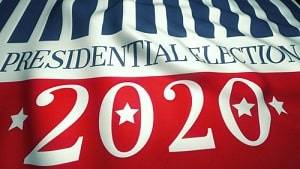
In less than a week, election day in the United States of America will be here. But odds are Americans across the nation might not know the official outcome immediately on November 3 when they go to sleep; in fact, the official results might not be known for days, weeks, maybe even a month later. That is due to an anticipated influx of absentee and vote-by-mail ballots expected to arrive at the last minute. And, of course, there are also the seeds of doubt planted in some voters’ minds about the legitimacy of certain voting methods, from which has sprouted hundreds of lawsuits still in process. Regardless, early voting is at an all-time high in October, with the number of ballots cast at nearly 68 million seven days before the election, shattering prior records for early voting. People are attending their local voting booths in droves to make sure their votes count – but what happens if the election is contested?
Electoral Process Timeline
First, here is a look at the electoral process timeline in the United States. These are some important dates to keep in mind as the election draws nearer:
- November 3: Election Day
- December 8: Deadline for Disputing the Election Results (“Safe Harbor”)
- December 14: Electoral College to Cast Votes (the system is based on a representative Electoral College for each state and not the popular vote)
- December 23: Electoral Votes Officially Delivered to Congress
- January 6: Congress Officially Counts the Electoral College Votes, Announcing the Winners (members are permitted to challenge the returns, in which case there is a process in place to make relevant arguments)
- January 20: The Presidential and Vice-Presidential Inauguration
A Brief History of Contested American Elections
There were not many instances of contested elections in prior years, but in recent memory is the election between George W. Bush and Al Gore, in which difficulties counting votes due to “hanging chads” in Florida forced the Supreme Court to make a decision in favor of Bush.
However, in 1876, a contested election in its truest form occurred. The election between Rutherford B. Hayes and Samuel Tilden saw splintered parties and disputed Electoral College votes that resulted in new acts getting passed just to be in compliance with the 12th Amendment’s process for determining the president.
At the start of 1877, the Electoral Commission Act was passed, which created a commission of 15 members of the government, drawing from the Supreme Court, the Senate, and the House of Representatives. This Commission then decided who would get which disputed electoral votes. Hayes won with barely enough time to get inaugurated.
In 1889, the Electoral Count Act was passed, which guides the process today as the votes get counted by the House and the Senate on January 6 and any disputes or arguments are resolved through negotiations among the representatives and senators from both parties.
Issues That May Influence the 2020 Election Results
Unfortunately, most constitutional scholars agree that the Electoral College’s rules and many associated laws, acts, and provisions are ambiguous. They do not clearly define how to handle a wide variety of conflicted and disputed responses during an election. Possible issues for the 2020 election include:
- Delays in vote counting due to COVID-19 pandemic-related mail-in ballot problems
- Lawsuits alleging wrongdoing with regards to the voting process or the votes counted or not counted
- Joint commission negotiations in Congress reach an impasse with regards to vote counts
- A state providing a secondary set of electors, as was the case with Hayes two centuries ago
- A state choosing its popular votes instead of its Electoral votes since the Constitution requires vote counts to go through the states first
- A governor refusing to sign off and authorize the electoral votes for his or her state
All of the above factors do not even consider the possibility that the current president has been open about not being willing to concede regardless of the election outcome.
Contact a Bronx Civil Litigation Lawyer
Despite all these concerns, your vote does count, your vote is important, and you should vote. As a New York criminal defense attorney, Joey Jackson knows how important this election—and all elections—are to his clients and his team. He recognizes the substantial impact elections have on the legal system, and that is why he wants you to vote. If you need legal representation for any matters, from civil service employee defense and civil litigation to criminal defense and wrongful death, contact JOEY JACKSON LAW, PLLC, at 833-563-9522 to schedule a confidential consultation.
Sources:
https://constitutioncenter.org/interactive-constitution/amendment/amendment-xii
https://www.washingtonpost.com/graphics/2020/elections/early-voting-numbers-so-far/
https://www.law.cornell.edu/uscode/text/3/15
https://fas.org/sgp/crs/misc/R44659.pdf
https://www.everycrsreport.com/files/2020-09-03_IF11641_5002793d090fd38c1af7284b97317d97259d009f.pdf
